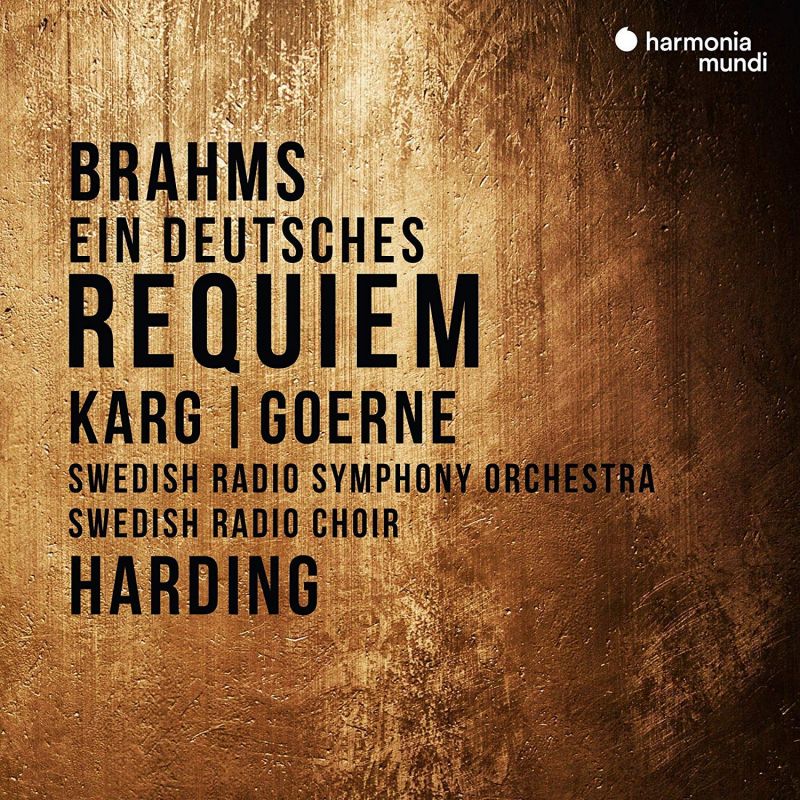BRAHMS Ein Deutsches Requiem (Harding)
View record and artist detailsRecord and Artist Details
Composer or Director: Johannes Brahms
Genre:
Vocal
Label: Harmonia Mundi
Magazine Review Date: 10/2019
Media Format: CD or Download
Media Runtime: 70
Mastering:
DDD
Catalogue Number: HMM90 2635

Tracks:
| Composition | Artist Credit |
|---|---|
| (Ein) Deutsches Requiem, 'German Requiem' |
Johannes Brahms, Composer
Christiane Karg, Soprano Daniel Harding, Conductor Johannes Brahms, Composer Matthias Goerne, Baritone Swedish Radio Choir Swedish Radio Symphony Orchestra |
Author: Peter Quantrill
And the drawbacks? Discreetly boosted in the mix for the grand summations of the second, third and sixth movements, the choir’s modest size and backward placing only become noticeable in the consoling paragraphs of the outer movements, where Daniel Harding’s thoughtful blend of vocal and instrumental textures risks smoothing over the articulation of Brahms’s carefully chosen text, for all the shaded vowels and dotted consonants on show.
Harding’s direction is unhurried, true to both the letter and the spirit of Brahms’s score. His shaping of ‘Wie lieblich sind deine Wohnungen’ as an intermezzo (with burbling clarinets given a helping hand by the engineers) is especially acute, and he gives everything to the third movement’s great moment of spiritual crisis, where the harrowing cries of ‘Wes soll ich mich trösten?’ are answered and assuaged by the dawning revelation of ‘Ich hoffe an dir’. Also recorded in Stockholm, Furtwängler touched the sublime at this point, but Harding runs him close.
In building the movement’s tension to that pitch of intensity, Harding enjoys the estimable advantage of Matthias Goerne as a magnificently careworn and world-weary philosopher. Between them they paint the sixth movement’s vision of a new Jerusalem with hushed wonder and expectation, quite distant from the pilgrims’ trudge of old. Only Christiane Karg’s solo disappoints, tightly sung with a quick vibrato much better suited to the penitent Gretchen on Harding’s fine recording of Scenes from Goethe’s ‘Faust’ (BR-Klassik, 12/14). Overall, however, this Requiem finds its proper context not in Brahms’s self-consciously assimilated heritage of Handel and Schütz but in Mozart and Schumann, not so pointedly as Rattle’s Gramophone Award-winning recording (EMI/Warner, 5/07) but with a gravity, unspoiled by austerity, that speaks to the heart of the piece.
Discover the world's largest classical music catalogue with Presto Music.

Gramophone Digital Club
- Digital Edition
- Digital Archive
- Reviews Database
- Full website access
From £8.75 / month
Subscribe
Gramophone Full Club
- Print Edition
- Digital Edition
- Digital Archive
- Reviews Database
- Full website access
From £11.00 / month
Subscribe
If you are a library, university or other organisation that would be interested in an institutional subscription to Gramophone please click here for further information.




